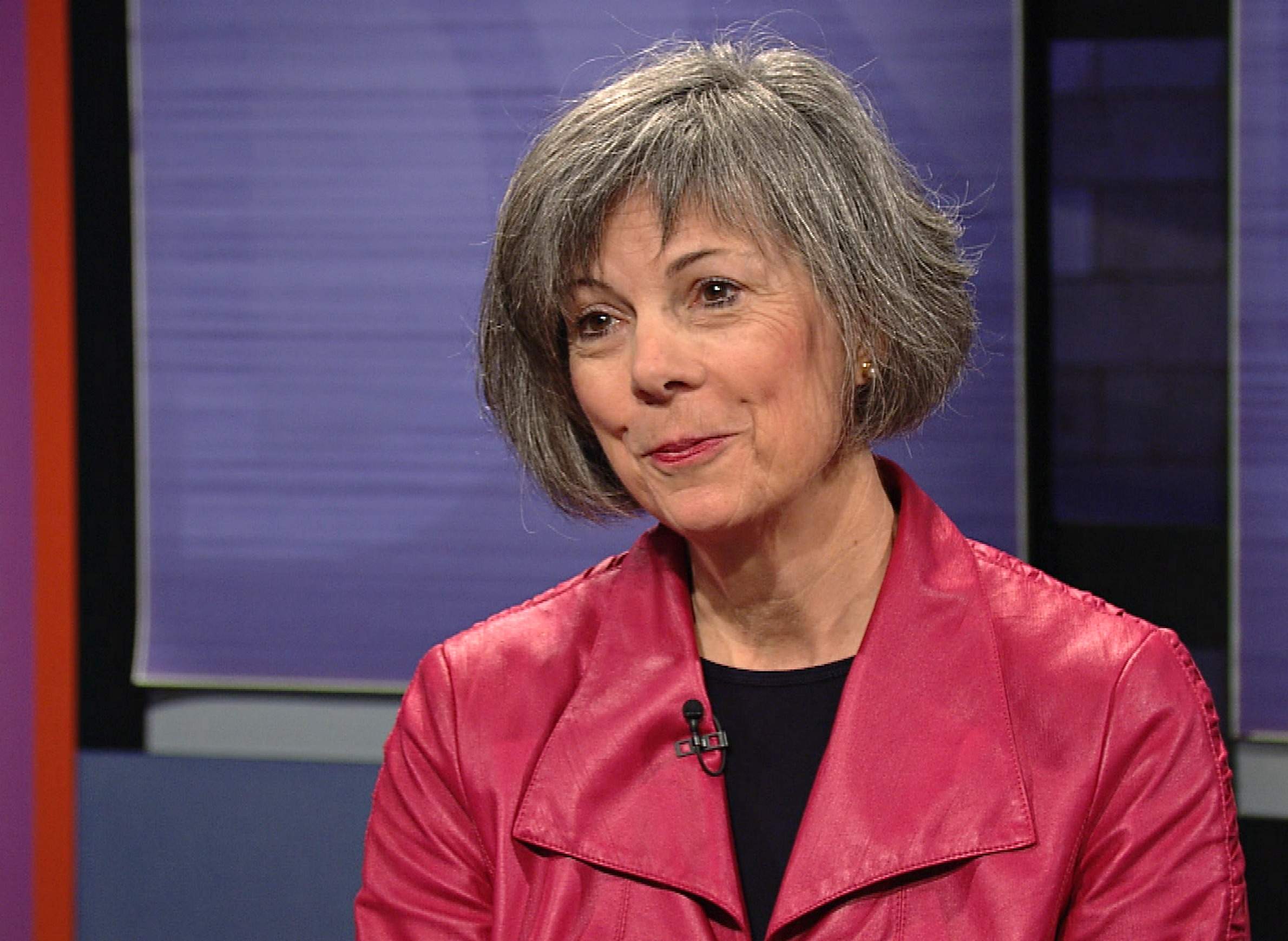
Falk on health insurance before the Affordable Care Act: "People don't want to go back to that day."

Falk on health insurance before the Affordable Care Act: "People don't want to go back to that day."
Kathleen Falk, one of the midwest regional directors for the U.S. Department of Health and Human Services, is likely looking at a job change soon — her job is a political appointment under President Barack Obama's administration. But she had a strikingly sunny outlook about the future of the Affordable Care Act in a Nov. 18, 2016 interview with Wisconsin Public Television's Here And Now.
Repealing the large, complex package of health-insurance regulations has been a prime motivator of Republican opposition to Obama since he signed it into law in March 2010. President-elect Donald J. Trump called the ACA a "disaster" throughout his campaign, but his transition has so far sent mixed messages about what it and Republican majorities in the House and Senate intend to do in 2017 and beyond. A few days after the election, Trump said that he'd be open to keeping at least two broadly popular ACA provisions intact: forbidding insurers from denying coverage based on a patient's pre-existing conditions, and allowing people to stay on their parents' insurance until they turn 26. But Vice President-elect Mike Pence said the new administration will focus on a repeal "right out of the gate."
In Wisconsin, where the ACA has reduced uncompensated care at hospitals, observers are trying to figure out how health insurance regulations will change. Nationwide, consumers are obviously still eager to get coverage through the health-insurance marketplace ACA created: On the day after Election Day alone, 100,000 people enrolled through this marketplace.
Falk pointed to this spike in enrollments as evidence that public support for ACA is larger than Trump's victory in the Electoral College and Republican legislators' success in maintaining their Congressional majorities suggest. Additionally, a wave of concern about rising premiums on the marketplaces could be tempered by the concurrent jump in available subsidies. But more importantly, Falk believes the 20 million people who've gained coverage under ACA will balk at repealing it, regardless of who they voted for.
Of course, it's Falk's job to promote the ACA and encourage enrollment, but she is also pointing to the political realities of making major legislative changes.
"They're not going to want to give it up," she said of previously uninsured people who've been able to get policies since ACA went into effect.
Meanwhile, cutting unpopular aspects of the law, like the individual mandate requiring people to have insurance or pay a tax penalty, while leaving more popular provisions in effect, will disrupt the mechanics of the law's effort to reduce health care costs.
"There will be consequences to repealing any just parts of it," Falk said. "For example, If the mandate was repealed, it means all the rest of us who already have insurance will end up paying more because we pay for the health care costs of those without insurance when they show at the emergency room for example, so there are a lot of people who are affected if you cherry-pick pieces."
"People don't want to go back to that day," she added, referring to the pre-ACA rules when insurance companies could deny people coverage based on pre-existing conditions.
Falk did not address the fact that getting and effectively using health insurance is still a very complex process even under the ACA, but did point to resources like Covering Wisconsin that can provide more information about enrollment.
Here And Now host Frederica Freyberg asked Falk to reconcile the fact that many of Wisconsin's Trump voters live in counties with high levels of ACA participation.
"People love their health insurance," Falk said. "They really count on that financial and emotional security of getting the care they need when they need it, so it'll be hard to take that away."